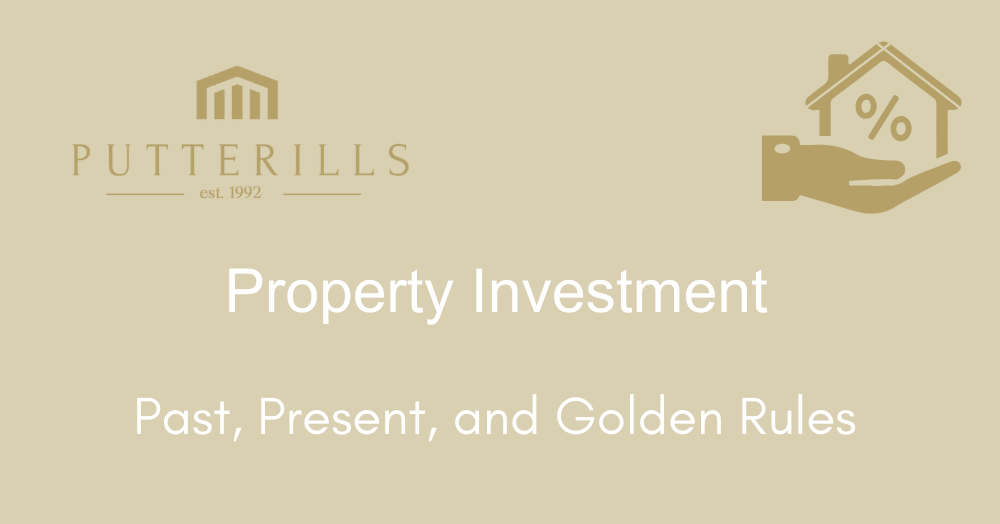
Navigating Property Investment: Past, Present, and Golden Rules
Investing in property has always been a journey fraught with uncertainty and scepticism. Whether it was in 1993 or in today's market, doubts about the viability of property investment have persisted. Yet, those who have ventured into this realm with a strategic approach have often found success, regardless of the prevailing economic conditions.
In 1990, amidst high unemployment rates, soaring interest rates, and widespread repossessions, the notion of investing in property seemed absurd to many. The prevailing sentiment was one of scepticism and disbelief in the possibility of property prices ever recovering. However, despite the prevailing pessimism, astute investors saw opportunities where others saw obstacles. They understood that market downturns are often followed by periods of growth and seized the moment to build their property portfolios.

Fast forward to today, and similar sentiments echo through the halls of property investment. Volatility remains a constant companion, yet the fundamentals of supply and demand continue to underpin the market. Despite fluctuations, the overwhelming demand for property coupled with a chronic shortage of supply suggests a trajectory of growth in the long term.

At the core of successful property investment lie the Five Golden Rules:
Always buy from motivated sellers: Instead of looking for a property you like and then negotiating with the seller, a smarter strategy is to look for motivated sellers who will be flexible on the price and/or the terms of the sale. This approach can potentially lead to significant discounts, providing a safety buffer in case of market fluctuations.
Buy in an area with strong rental demand: Strong rental demand is crucial for ensuring consistent cash flow. It's essential to invest in areas where rental properties are in high demand, ensuring that vacancies are quickly filled at market rates.
Buy for cash flow: Your property should generate a monthly positive cash flow, making it an asset rather than a liability. Investing with a focus on cash flow helps build a financial safety net and mitigates the impact of interest rate rises.
Invest for the long term; buy and hold: Long-term ownership allows investors to benefit from significant capital growth. While short-term fluctuations may occur, holding onto properties that generate positive cash flow can yield substantial returns over time.
Have a cash buffer: Maintaining a cash buffer is essential for handling unexpected expenses or emergencies. Lack of liquidity can lead to financial difficulties, so it's prudent for investors to set aside funds for unforeseen circumstances.
These principles serve as the bedrock of a robust investment strategy, offering resilience against market volatility.
Four key factors drive the growth of property prices: supply and demand dynamics, affordability, access to finance, and confidence. The imbalance between supply and demand, exacerbated by restrictive planning laws and a growing population, continues to drive prices upwards. While affordability remains a concern in certain areas, the gradual return of finance to the market has bolstered investor confidence.
Confidence, perhaps the most crucial factor, plays a pivotal role in shaping market dynamics. Positive sentiment fosters investment, while negativity breeds apprehension. Overcoming the fear of uncertainty is often the first step towards seizing investment opportunities.
The current landscape presents a window of opportunity for savvy investors. With low competition and significant discounts available, now is the time to capitalize on the market's potential. As Warren Buffett famously said, "Buy when others are selling and sell when others are buying."
In conclusion, the property market, like any other investment arena, is subject to cycles of boom and bust. While the timing may never be perfect, strategic investments aligned with fundamental principles can yield substantial returns in the long run. Whether it's 1993 or today, the essence of successful property investment remains unchanged: seize the moment and build for the future.
